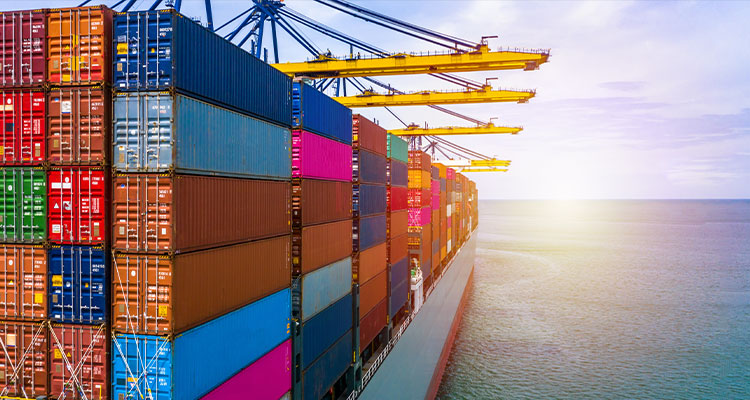James Willn explores supply chain design features that help to mitigate the risks of sanctions
Sanctions are a common tool used by governments to impose policies, often targeting individuals, industries, or countries. While they are used to promote human rights and geopolitical interests, they can create many difficult challenges for businesses that have global supply chains.
For companies with complex supply chains, understanding how sanctions can affect operations and how to reduce these risks is essential to maintaining compliance, avoiding operational disruptions, and earning a good reputation. Sanctions can disrupt supply chains by ending ties with important suppliers, customers, or providers, which can lead to financial loss, rise in prices, and a bad reputation for the business. So, what are the key risks posed by sanctions, and how can companies mitigate them?
A tumultuous landscape
One of the greatest challenges facing businesses is the complexity of sanctions regulations, as they vary by nation and can target specific people, countries, or companies. To make matters more difficult, sanctions do not always remain the same and can evolve rapidly in response to geopolitical events, creating an environment where businesses must continuously monitor and adapt to changing rules. Companies often struggle to keep up with these constantly evolving rules, increasing the risk of accidental violations. Sanctions can also cause sudden disruptions and affect key suppliers or trading hubs, forcing businesses to find expensive and time-consuming alternatives.

Problems are also caused by lack of transparency in the supply chains, making it hard to determine whether a supplier or a partner is connected to a sanctioned entity. Another major issue faced by businesses is the potential for sudden and unpredictable disruptions. When sanctions target key suppliers or entire trading hubs, businesses often must act quickly to identify and onboard alternative suppliers. This process can be both expensive and time-consuming, with ripple effects that extend across the entire supply chain. Such disruptions can also strain relationships with customers, as companies struggle to meet deadlines and maintain the quality of their products or services.
How can businesses reduce sanctions risks?
To reduce the risks caused by sanctions, companies should adopt an initiative-taking approach. Diversifying suppliers is a crucial strategy to avoid heavily relying on regions at a relatively high risk. Maintaining relationships with partners from around the globe makes sure that disruptions in one area will not heavily damage operations. Mapping out supply chains is also vital to gain a clear understanding of the network, as it allows companies to identify potential links to sanctioned entities or regions and quickly address them before they cause problems.
In addition to diversifying suppliers and mapping, companies should also prepare for potential disruptions by establishing backup plans. By simulating various sanction scenarios, businesses can identify vulnerabilities in their operations and create strategies for an immediate response. For example, maintaining strong relationships with backup suppliers, stockpiling essential materials, or exploring dual-sourcing arrangements can help to mitigate the impact of sudden supply chain disruptions. Collaborating closely with legal experts also ensures that companies are complying with the latest sanctions regulations, reducing the likelihood of violations.
Long-term resilience is key
Building resilient supply chains requires a mixed approach that emphasizes visibility, communication, and ethical practices. By thoroughly mapping out supply chains, companies gain a clear understanding of their operations, allowing them to identify potential vulnerabilities and address risks effectively. This level of visibility not only minimizes disruptions but also creates opportunities for their operations to improve.
Developing strong, transparent relationships with suppliers is another crucial step. Trust and open communication ensure that potential issues can be addressed collaboratively, reducing the likelihood of unexpected disruptions and creating a more stable supply network.
Additionally, prioritizing ethical practices is essential for long-term resilience. Avoiding high-risk areas and investing in sustainable, socially responsible practices not only helps companies comply with regulations but also enhances their reputation with their customers. Companies with a greater commitment to ethical supply chain management are much better prepared to adapt to evolving market and regulatory demands while maintaining their competitive advantage.
Staying one step ahead
In today’s interconnected global economy, sanctions are a thing that businesses cannot afford to ignore. Companies that fail to prepare for these challenges risk severe repercussions, financial losses, and damage to their reputation. By diversifying suppliers, mapping supply chains, and planning for potential disruptions, organizations can mitigate the risks associated with sanctions and ensure they can still operate successfully.
Taking an initiative-taking approach, staying informed about regulations, and prioritizing ethical practices not only reduces risks but also builds trust and strengthens resilience. These strategies set the foundation for long-term, thriving success in a complex and unpredictable global market, enabling businesses to succeed even in the face of sanctions-related challenges.
James Willn
James Willn is a Partner at Reed Smith LLP, a global law firm with a presence in the US, Asia, Europe, and the Middle East. As an arbitration lawyer with more than 14 years of experience, James focuses on complex disputes and international arbitrations within a range of industries.
